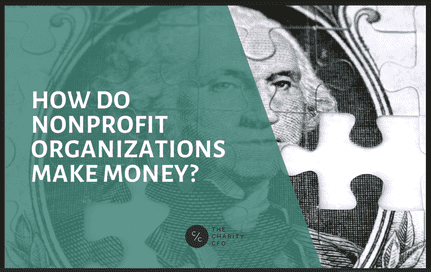How do founders of nonprofits make money | How do you make money from a non profit business websiteearningchecker
Have you ever asked yourself: How do founders of nonprofit organizations make ends meet? Sometimes they earn a great deal, given they are spending their time serving others. But what pays these people if their organizations are not designed to generate a profit? This is an interesting topic, so why not jump in and learn something? Remember, charity is not the end — its results and achievements are. The importance of sustainability is key.
I have always been curious about the nonprofit sector, so I asked myself this very question. It seemed like a wonderful mystery: how do these mission-driven facets of humanity profit their way into sustainability? For those of you who have ever been curious about starting a nonprofit or wondered how founders keep it going — this is for you.
Nonprofits: The Business of the Cause
Fundamentally, a nonprofit is an organization that is based upon serving a mission rather than profits being paid out to the founders or shareholders. That said, money does come in somehow — most nonprofits have multiple streams of income — but the money is supposed to be used to advance the mission of the organization, not paid out as dividends to owners.
So, where does a founder fit into all of this? There are a few ways in which founders can bring in some cash while still being true to their mission.
1. Income from the Nonprofit Organization
Most founders of nonprofits draw a salary from the organization they create, and why not? Running a nonprofit is essentially full-time work. Strategic planning, fundraising, operations, and public relations are just a few of the mentioned responsibilities. Nonprofits are no different, and it’s good if there is power at the top. In any group, an organization needs strong leadership — and just like corporate CEOs, that leadership does not come free.
Now, that doesn’t mean they are making millions. In not-for-profits, salaries are frequently depicted as “frozen” or pegged at a certain point due to the size and perceived capacity of the organization. Nonprofit organizations are subject to strict guidelines for the amount of funding that can be used on salaries, with oversight by the IRS and other regulatory management branches.
2. Grants and Funding
Nonprofits often source grants to underwrite operating expenses. Although these grants are generally tied to supporting the organization’s mission and services, some of them can be applied to overhead expenses (such as the salaries for founders and key staff). I recall one story of a founder who won a significant grant for their environmental NGO and reserved some of those funds to carry on working on the mission long-term.
3. Consulting
Sometimes, nonprofit founders really double up as consultants too. By counseling other nonprofits, governments, or corporations in their respective areas of expertise (education, health, environment, social justice, etc.), consulting becomes highly lucrative. It’s an activity that can be done part-time, serving as a great way for founders to convert their expertise and network into revenue without cutting into the organization’s funds.
For instance, I once interviewed the founder of a literacy nonprofit who also did part-time contractual work for government literacy programs. This helped her continue to share her knowledge on a more widespread basis while maintaining the focus of her nonprofit’s mission.
4. Public Speaking Engagements
Public speaking is another revenue stream for many nonprofit founders. Their passion for their cause and what they have learned in creating and running a nonprofit have made them in-demand speakers at conferences, seminars, and even universities.
For example, a mental health nonprofit founder became a high-demand public speaker. Their speaking engagements weren’t simply a way to promote their cause — they were also paying the bills and allowing them to live while giving back.
5. Writing and Books
Some founders get into writing opportunities. Their expertise and experience are important enough that people will pay good money for it. They might write about their pet cause or the journey of building a nonprofit, earning royalties or speaking fees in support of books they help promote.
Writing and selling books can even become a passive income business if the book catches on. Consider the founder of a prominent nonprofit who writes a memoir about their experience to encourage its readers and possible supporters.
6. Partnerships and Sponsorships
Many nonprofits live and die on donations or grants, though the latter might seem to some like a catch-22. For instance, a nonprofit focusing on clean water initiatives might team up with a water filtration company. The nonprofit gets the money and resources it requires to fulfill its mission, and the founder may even be able to make a salary or get paid by that partnership.
7. Social Enterprises
Some founders go even further by creating a social enterprise business — a for-profit business where profits get reinvested back into the mission of the nonprofit. Such progression could include the sales of goods or services, with profits returned to the nonprofit or used for the salary of a non-owner employee. Many people find this model to be the best of both worlds — doing good while making money go further and more stable.
One environmental nonprofit I found even offers products like reusable bags and water bottles as green alternatives. The revenue raised supports their cause and gives the founder a comfortable lifestyle.
Ethical: Balancing Purpose with Profit
But here comes the tricky part: how do you make money without muddling with a nonprofit? We must do so with great care and integrity. A clearer, defensible pay structure with salaries in conjunction with the mission and values is essential.
The common myth is that nonprofit founders are not allowed to make much money and should live in moderation. However, the truth is that starting and running a nonprofit is hard work. Founders need to be compensated to spend their time creating lasting change. The founder should always be fairly compensated, but the mission has to remain sacrosanct.
Check it Ou : How do nonprofit owners make money | How do nonprofits make money websiteearningchecker
Top FAQs About How do founders of nonprofits make money | how do you make money from a non profit business websiteearningchecker
Q1: Can a Nonprofit Founder Get Rich?
A: How many nonprofit founders become mega-wealthy just through their nonprofit work? Yes, founders can enjoy a salary, but nonprofit regulations prevent excessive compensation. The money should be used for mission work instead of lining pockets.How do you make money from a non profit business websiteearningchecker
Q2: How much should a nonprofit founder be paid?
A: This varies based on the nonprofit’s size and budget, as well as accepted industry standards. Founders of larger institutions with substantial operating budgets can be paid more, but the compensation must be fair and defensible compared to other nonprofits.How do you make money from a non profit business websiteearningchecker
Q3: Can a founder run a nonprofit and a for-profit business at the same time?
A: Many founders have other businesses or consult on the side. Provided no conflict of interest arises, and the nonprofit remains their highest consideration, founders often develop other projects.How do you make money from a non profit business websiteearningchecker
Q4: Can a Nonprofit Make a Profit?
A: Technically, yes. Nonprofits can and should earn revenue, but any “profit” must be reinvested in the organization to advance its cause. The primary distinction is that nonprofits do not return profit to shareholders or owners like for-profit businesses.How do you make money from a non profit business websiteearningchecker
Check it Ou : How to make money on gta 5 story mode | Grand theft auto online best way to make money websiteearningchecker
Conclusion: Making Money Without Quitting My Passion
And therein lies the answer to how nonprofit founders sustain themselves. Four of the most popular ways — from taking a salary to consulting, writing, and public speaking! It’s not about getting rich; it’s about sustainability. As a founder, you need to pay yourself to keep the lights on and move closer to the mission of your organization. As long as it’s done ethically and transparently, driving revenue as a nonprofit founder is not just achievable but necessary to truly make an impact.




